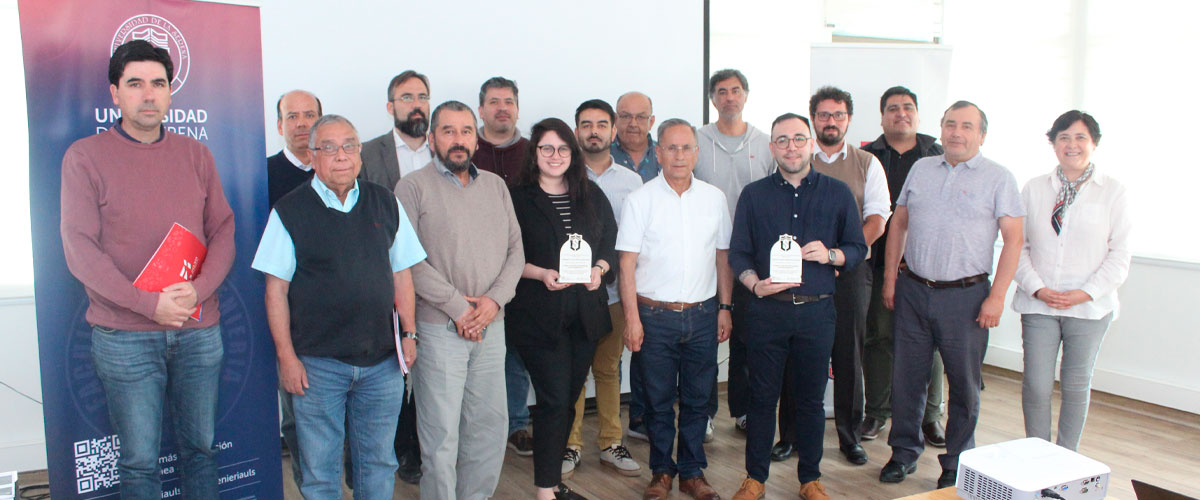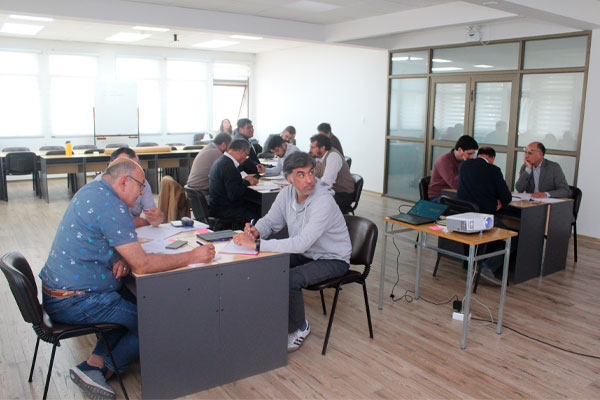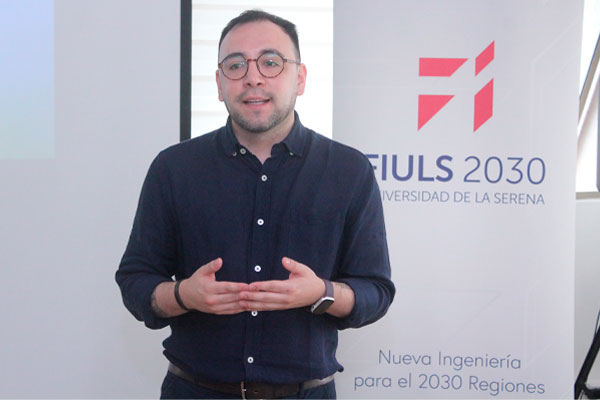- News
FIULS academics and directors participate in interdisciplinary learning workshop

Academics and directors of the various Departments of the ULS Faculty of Engineering met to participate in the workshop "How to Build Interdisciplinary Learning?", taught by the Teaching Development Center of the Pontifical Catholic University.
The event was held at the Technology Center of the Faculty of Engineering (CETECFI), a space that was conducive for participants to learn practical tools and innovative strategies to promote the construction of effective bridges between different fields of study, and also provided examples practical lessons and concrete experiences that illustrated how to implement interdisciplinary strategies effectively.
Fernanda Penela and Matías Ringler were the professionals in charge of this instance and who clarified the doubts of the attendees. Regarding the topic they addressed, Fernanda Penela pointed out that one of the main difficulties that arise when implementing interdisciplinary educational strategies is “to be able to monitor in some way the students who can collaborate; and understand this collaboration as a space that integrates different perspectives where dialogue, reflection and respect can be generated so that this collaboration and teamwork is encouraged.".
For his part, Matias Ringler mentioned that these types of workshops are important since “It is a methodology that implements the development of various skills that, in some cases are called soft, are very important in a world that is hyperconnected and in which it is necessary to develop other types of skills in addition to those of the content. It is important since every day we look for professionals who are capable of interconnecting with each other and responding to the needs of the world of work.".
The participants expressed their satisfaction and enthusiasm for the tools acquired, highlighting the relevance of these skills in the current educational context. Mario Gaete, coordinator of the Mining Engineering program, expressed that it is always important to acquire this knowledge because “Quality has to be linked to new strategies and this will allow us to generate better performance in our students and, in the long run, the timely degree will benefit.".
Along the same lines, Patricio Orellana, academic from the Department of Food Engineering, expressed that “It allowed me, like the other academics, to open a bit the perspective of working with other areas. On this occasion we work based on a problem and we try, together, to solve it. It was quite special to exchange ideas and also enriching to be able to understand them and reach a common agreement.".
This workshop was possible thanks to the work and management of the Curriculum Harmonization and Technology-Based Postgraduate Studies axis of the FIULS 2030 Project.
Written by Felipe Díaz, FIULS 2030


